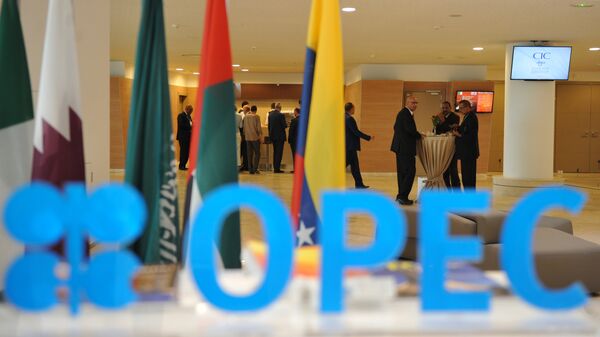“It went very well. What we did last night was to build on that initial outreach and we had a very open, frank and lively conversations on a current state of the cycle and we also compared noted from our experiences during these cycles, how we should proceed going forward. It was a very good talk that further deepened relations between OPEC and the independence. I was very surprised by the high-level of turnout, as well as the interest they have shown in continuing this energy dialogue,” he said.
Barkindo confirmed that “some Canadian companies” were in attendance.
READ MORE: New Energy Competiton? OPEC to Meet US Shale Oil Producers
“This dialogue is going to be continuing beyond the rebalancing of the market, it is a holistic dialogue that covers the entire industry. It is not about prices, not about supply adjustments,” the official added.
According to UAE Energy Minister Suhail Mazrouei, OPEC is meeting US shale oil producers to discuss and compare forecasts for the oil market, but their participation in production's cuts is out of the question.
OPEC Chief Barkindo with Saudi Aramco CEO Nasser seconds before revealing to Sputnik results of US shale firms meeting #OPEC #CERAWeek2018 pic.twitter.com/RteMTkKV1q
— Sputnik Insight (@Sputnik_Insight) 6 марта 2018 г.
On Monday, Fatih Birol, the International Energy Agency (IEA) executive director, told Sputnik that OPEC and other participants of the oil production cut deal should consider carefully their next steps, as the United States is set to greatly increase production of shale oil.
According to the latest IEA report, the total production of petroleum and other liquids in the United States will grow to nearly 17 million barrels per day by 2023, from 13.2 million barrels per day in 2017. The United States will thus be the largest global producer.
In 2016, OPEC and several oil producing countries outside the cartel agreed to cut oil production by a total of 1.8 million barrels per day in an effort to stabilize global oil prices. Non-OPEC states pledged to jointly decrease oil output by 558,000 barrels per day, with Russia pledging to cut production by 300,000 barrels daily.



